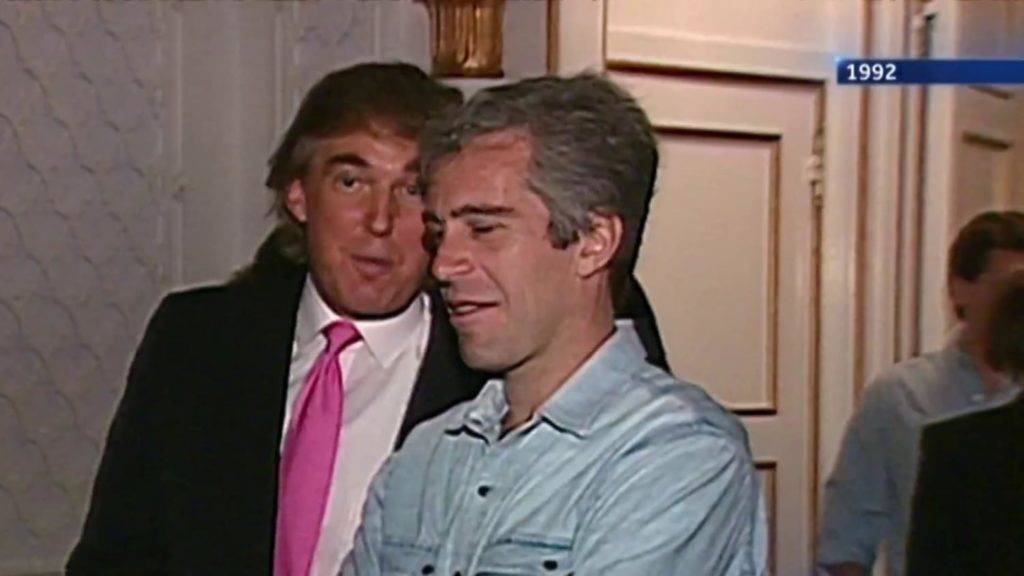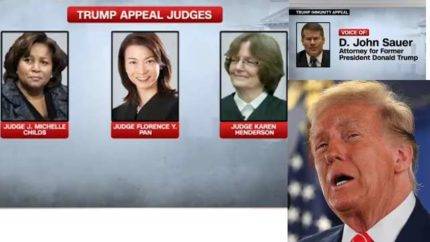Former President Donald Trump’s attorney, John D. Sauer, left jaws dropping as he presented an audacious legal argument, asserting that Trump could order the elite Navy SEAL Team 6 to assassinate a political rival without facing any criminal consequences. Sauer contended that Trump, protected by a supposed “presidential immunity,” would only be liable to prosecution if Congress chose to impeach and convict him. The unprecedented claim came to light during a court session where Sauer sought to shield Trump from potential legal ramifications.
Presidential Immunity: The Hypothetical Assassination Scenario
During the court proceedings, Attorney John D. Sauer passionately argued that the presidency granted Trump a unique shield against criminal charges, even for extreme actions like ordering an assassination. The notion of presidential immunity, if accepted, would elevate the president to a position above the law, challenging the very foundations of the democratic system. Sauer’s argument raises questions about the limits of executive power and whether the U.S. legal system can withstand such an expansive interpretation of presidential authority.
The gravity of the situation became even more apparent when one of the appellate judges posed a hypothetical question, asking if Trump could indeed order SEAL Team 6 to assassinate a political rival. Sauer’s response, suggesting that criminal prosecution would only be possible if Congress impeached and convicted Trump, left the courtroom in disbelief. The scenario painted a stark picture of a president potentially evading legal consequences for egregious actions, relying on a compliant Congress to shield him from accountability.*
Presidential Immunity or a Dangerous Precedent?
The shocking revelation of Sauer’s argument has ignited a fierce debate over the concept of presidential immunity and its potential implications for the rule of law in the United States. Legal scholars and experts are expressing deep concerns about the dangerous precedent such a defense strategy could set for future leaders.
The idea that a sitting president could enjoy immunity from criminal prosecution for ordering extreme actions like political assassinations challenges the very essence of democracy. Critics argue that this interpretation could transform the presidency into an unchecked and authoritarian position, undermining the system of checks and balances that is integral to the U.S. Constitution. The judiciary now faces the critical task of determining whether such immunity, if accepted, would be a safeguard or a perilous erosion of democratic principles.

Implications for Congressional Oversight
Sauer’s argument further underscores the importance of congressional oversight in holding the president accountable for potential abuses of power. The question of whether a president can act with impunity as long as the legislative branch remains complacent raises concerns about the effectiveness of the impeachment process as a tool for maintaining a balance of power. As legal experts grapple with the implications, the case takes on broader significance, serving as a litmus test for the strength of the U.S. democratic institutions.*
Echoes of January 6th and the Fragility of Accountability
The shocking assertion made by Trump’s attorney draws parallels with the events surrounding the January 6th insurrection, raising questions about the fragility of accountability and the willingness of a partisan Congress to hold a president responsible for his actions.
Critics are quick to draw parallels between Sauer’s argument and the events of January 6th, where Trump supporters stormed the U.S. Capitol. The fact that Trump faced impeachment but ultimately escaped conviction has created a precedent that further fuels concerns about accountability. The potential for a similar outcome in hypothetical scenarios, such as ordering an assassination, adds to the apprehension about the strength of the U.S. legal and political systems.
A Partisan Congress and Its Role in Accountability
The attorney’s assertion that a president could avoid criminal prosecution if not impeached highlights the role of a partisan Congress in shaping the course of justice. The fear is that a politically motivated Congress might choose to shield a president from legal consequences, potentially leading to a system where accountability becomes a casualty of political allegiance. The ongoing case raises critical questions about the resilience of democratic institutions when faced with challenges to the rule of law.

Public Outcry and Calls for Judicial Independence
As news of the courtroom revelation spreads, there is a growing public outcry against the notion of unchecked presidential power. Advocates for judicial independence are calling for a robust response to ensure that the legal system upholds its duty to safeguard democracy.
The public reaction to Sauer’s argument has been swift and fervent, with many expressing deep concerns about the potential erosion of democratic values. Social media is abuzz with discussions on the implications of such a legal stance, with citizens urging for a thorough examination of the case and its ramifications. The case has become a rallying point for those advocating for a stronger commitment to democratic principles and the rule of law.
Amidst the controversy, there are calls for the judiciary to demonstrate independence and ensure a fair and unbiased adjudication of the case. The need for a thorough examination of the legal arguments and their alignment with constitutional principles is paramount. As the case unfolds, it becomes a litmus test for the judiciary’s ability to navigate through uncharted waters and uphold the democratic values that form the bedrock of the United States.
Table of Contents
Discover more from OGM News NG
Subscribe to get the latest posts sent to your email.














